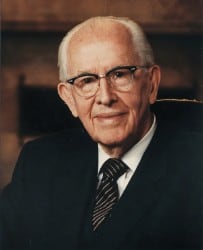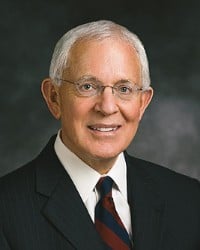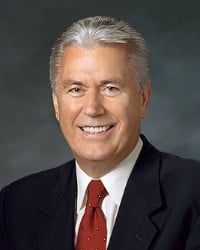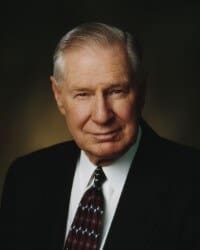
LDS Quotes on Pride


“In the scriptures there is no such thing as righteous pride. It is always considered as a sin. We are not speaking of a wholesome view of self-worth, which is best established by a close relationship with God. But we are speaking of pride as the universal sin. . . . Essentially, pride is a “my will” rather than “thy will” approach to life. The opposite of pride is humbleness, meekness, submissiveness (see Alma 13:28), or teachableness. . . .Pride is characterized by “What do I want out of life?” rather than by “What would God have me do with my life?” It is self-will as opposed to God’s will. It is the fear of man over the fear of God.”
| in Conference Report, April 1986, pp. 5-6; or “Cleansing the Inner Vessel,” Ensign, May 1986, pp. 6-7

“The proud stand more in fear of men’s judgment than of God’s judgment. ‘What will men think of me?’ weighs heavier than ‘What will God think of me?’”
| “Beware of Pride,” Ensign, May 1989

“Some prideful people are not so concerned as to whether their wages meet their needs as they are that their wages are more than someone else’s. Their reward is being a cut above the rest. This is the enmity of pride.”
| “Beware of Pride,” Ensign, May 1989

“The proud depend upon the world to tell them whether they have value or not. Their self-esteem is determined by where they are judged to be on the ladders of worldly success. They feel worthwhile as individuals if the numbers beneath them in achievement, talent, beauty, or intellect are large enough. Pride is ugly. It says, ‘If you succeed, I am a failure’.”

“Contemplate the advantages of life in a society in which considerations of status were only secondary, where citizens were more concerned with their responsibilities than their rights, and where those in authority might even occasionally step forward and humbly acknowledge, “I could be wrong.” Must our need to be “right” be so all-consuming? Surely this intolerance of others and their viewpoints is nothing less than the hubris the Greeks viewed and warned against as the suicidal sin. One wonders how differently even recent world history might be written if its principal participants had yielded to the gentle nudgings of humility.”
| “To Walk Humbly with Thy God,” Ensign, May 2001, p. 10

“Pride is the sin of comparison. This is the sin of, ‘Thank God I am more special than you.’ At its core is the desire to be admired or envied. It is the sin of self-glorification. When those they envy stumble or suffer, they secretly cheer. When we become obsessed with our status; when we focus on our importance, power, or reputation; when we dwell on our public image…that’s when pride begins to corrupt. Despite his magnificent abilities and accomplishments, the Savior was always meek and humble.”

“What is the central characteristic of those having only five loaves and two fishes? What makes it possible, under the Master’s touch, for them to serve, lift, and bless so that they touch for good the lives of hundreds, even thousands? After a lifetime of dealing in the affairs of men and women, I believe it is the ability to overcome personal ego and pride – both are enemies to the full enjoyment of the Spirit of God and walking humbly before him. The ego interferes with husbands and wives asking each other for forgiveness. It prevents the enjoyment of the full sweetness of a higher love. The ego often prevents parents and children from fully understanding each other. The ego enlarges our feelings of self-importance and worth. It blinds us to reality. Pride keeps us from confessing our sins and shortcomings to the Lord and working out our repentance.”
| Ensign, May 1994, p. 6

“Most of us think of pride as self-centeredness, conceit, boastfulness, arrogance, or haughtiness. All of these are elements of the sin, but the heart, or core, is still missing. The central feature of pride is enmity-enmity toward God and enmity toward our fellowmen. Enmity means “hatred toward, hostility to, or a state of opposition.” It is the power by which Satan wishes to reign over us.
“Pride is essentially competitive in nature. We pit our will against God’s. When we direct our pride toward God, it is in the spirit of “my will and not thine be done.”
| “Beware of Pride,” Ensign, May 1989

“The proud make every man their adversary by pitting their intellects, opinions, works, wealth, talents, or any other worldly measuring device against others. In the words of C. S. Lewis: ‘Pride gets no pleasure out of having something, only out of having more of it than the next man. … It is the comparison that makes you proud: the pleasure of being above the rest. Once the element of competition has gone, pride has gone’.”
| “Beware of Pride,” Ensign, May 1989